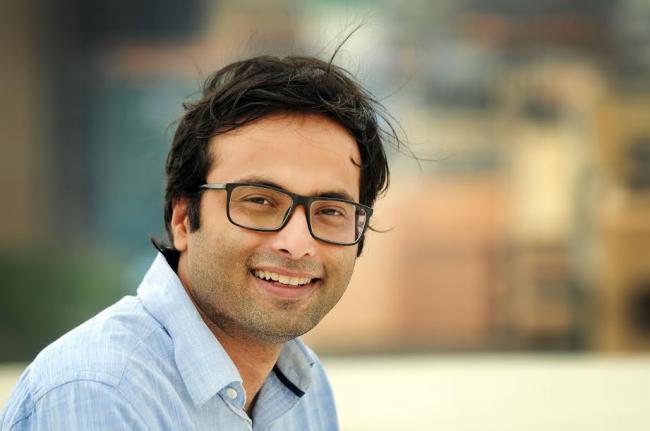
'World shifting focus to growing luxury consumer base in India'
As the realms of luxury and affordability fuse with common people, Mahul's book takes a strategic, behavioural, historical, experiential, demographical, psychological, dynamic, mechanical, and also a philosophical look at what constitutes luxe or dazzle. The book is meant for all stakeholders of luxury brands – owner, custodian, retailer, connoisseur as well as student – helping them understand and formulate, with a historical perspective, an effective strategy for conceiving, positioning, placing, promoting and pricing these luxury products.
What does luxury mean to you?
What is luxury? No matter how obvious the question might seem, it demands some contemplation. What does luxury mean to you? Expensive? Exorbitant? Unaffordable? The word luxury has its origin in ‘luxe’, which means ‘dazzle’. So technically, anything that dazzles you is luxury and it is this dazzle that commands the premium. Whether you call that dazzle ‘brand equity’ or ‘razzle dazzle’ is completely your call.
Why a book on luxury?
Unfortunately, the literature on luxury is very limited, globally, and writers have mostly focused on cataloguing luxury products and showcasing them. There was an urgent need to narrate a wonderful tale of luxe -- capturing this wonderful dazzle in a holistic way, unveiling its various facets. My columns for The Economic Times – ET Retail have been a great avenue for narrating the untold luxury story. Whether you can afford it or not, you can always appreciate it. However, through my columns I was not able to paint a holistic, all-encompassing picture of luxe. I felt the need to pen a book that captures the essence of luxury and its long-standing romance with India. This book is a result of that quest on which I had embarked on, two decades ago. It has been a great adventure and I want more and more people to set sail.
How is Decoding Luxe different from other books in this genre?
Decoding Luxe essentially explores various facets of luxury brands, which used to be a niche market, but only till some time back. As the realms of luxury and affordability fuse with common people, this book takes a strategic, behavioural, historical, experiential, demographical, psychological, dynamic, mechanical, and also a philosophical look at what constitutes luxe or dazzle.
It is a bible for all stakeholders of luxury brands – owner, custodian, retailer, connoisseur as well as student – helping them understand and formulate, with a historical perspective, an effective strategy for conceiving, positioning, placing, promoting and pricing these luxury products.However, this book is not at all about product reviews, which is what is largely considered as luxury writing in India and abroad. This book will not tell you what to buy and from where to buy it. No! This isn’t a catalogue of luxury goods and boutiques. Decoding Luxe takes you on a quest through dreams, aspirations, contradictions, myths, royalty, and realities that shroud this very mysterious element called luxury.
You have written that luxury is relative. Can you elaborate on that?
Luxury is relative. The luxe quotient and luxe factor (measures that I have created to measure this dazzle) are fundamentally relative. However, what dazzles you may not dazzle me. Also the degree of dazzle becomes a key differentiator.
Let me elaborate with a few Indian examples the degree to which the razzle-dazzle differs. I drool over a Cartier Panthere ring, or a Louis Vuitton hot-stamped trunk. For me that is luxury. However, making an apple to apple comparison, my dazzle just seems lacking any lustre when we look at the way the Richie Riches of our ‘Great Nation of the poor’ have dabbled in luxury: be it the Maharaja of Patiala Bhupinder Singh’s Cartier crown with 234.69 carat De Beers diamond or Maharaja of Jammu and Kashmir Hari Singh’s customised 30 Louis Vuitton trunks, one of which is still on display at one of the LV stores.
 You have said that the e-commerce in luxury will not work. Why so?
You have said that the e-commerce in luxury will not work. Why so?
The reason behind the success of e-commerce in India is our love for price-sensitivity. We love discounts, we love value for our money. The entire machinery of e-commerce or e-retail runs on unrealistic deals and discounts.And this is where the meeting of hearts between ecommerce and luxury doesn’t happen. So let us understand the premises on which luxury buying is based in India.
Luxe is a purely experiential phenomenon as it is heavily dependent on how your senses perceive something. If your senses feel dazzled, you are convinced to shell out that premium for a luxury brand.The entire shopping experience wherein you try a great pair of shoes or a lovely shirt and look at the mirror and then decide whether you should buy it or try another one can’t ever be replicated by an image of the same product, even with a 360 degree view. It is next to impossible to excite and convince our senses via a laptop, tab or mobile screen.
And that is why the ecommerce companies try the same strategy of heavy discounts that they try for premium products. Unfortunately, this story of crazy discounts opens another can of worms -- the world of luxury counterfeits that are sold online.
When you are paying a hefty premium for a luxury purchase you are paying for the experience. You walk into a luxury boutique, the way you are greeted with a smile and offered a special treatment from the word go, it is bound to make you feel good and special. The boutique manager will make you realise that you are almost on the verge of entering an exclusive and elite club with an amazing history and legacy -- it is just a purchase away. Then your senses, which are already feeling special, actually experiences the goods feel more special. For example, the latest Omega watch that James Bond is sporting in “Spectre” is on your wrist. How can you not feel elated? You have already “bonded” with that timepiece. You just know this is the one.
I was quite intrigued by the chapter on luxury counterfeits. Do you think it is growing market? Do you really online presence has helped counterfeit market grow?
Growing at a compounded annual growth rate of almost 40-45 per cent, the counterfeit luxury products market in India is likely to more than double to INR 5,600 crore from the current level of about INR 2,500 crore. A reason why the market of luxury fakes is growing at such a fast pace is the advent of e-commerce platforms selling them at lucrative prices. Web shopping portals account for over 25 per cent of the fake luxury goods market in India.The size of counterfeit luxury industry in India is currently about 5 per cent of the overall market size of India’s luxury industry which currently is worth over $14 billion. With a share of about 7 per cent, fake luxury products account for over $22 billion of the global luxury industry worth about $320 billion.
Luxury counterfeits are not a new phenomenon, but with technological advances and sophisticated new ways to reach consumers, the business is increasing rapidly.
Historically, luxury counterfeits were often shipped in large cargo containers and passed through numerous middlemen before reaching the final consumers. However, now counterfeit sellers set up online presences on auction or marketplace sites and ship luxury counterfeits directly to consumers. They also use the internet and social media tools to generate web traffic and to divert consumers to rogue e-commerce websites selling their goods which often have the same look and feel as the brand owner’s site.
Can you share with our readers a little on the two measures of luxury that you have coined?
Luxury is all about the dazzle. And dazzle is all about perception. So, there is no universal ‘Luxe Quotient’ or ‘Luxe Factor’, as I will like to name them.Luxe Quotient or LQ is a unique measure for capturing the longing and desire for a luxury brand. It has the ability to capture the relative dazzle factor between two or more comparable brands from the perspective of a customer.
The difference in dazzle is captured by Luxe Factor. This is from the perspective of the brand towards the customer. So it will be the same brand and different customers and their dazzle factors.
What do you think is the future of luxury in India?
With the ebbing Chinese luxury story, most luxury goods providers – including world’s biggest luxury group LVMH (Moët Hennessy Louis Vuitton SE) – are shifting focus to the growing luxury consumer base in India, which is poised to grow at 25% from 2013 till 2018, and is likely to touch $18-billion mark from the ongoing level of $14 billion.
You are a communicator with a Tata group company, you have acted in a film that was screened at Cannes Film Festival, you are doing your PhD, where did you get time to write?
I have been a journalist for over a decade, writing is my passion. So I always have time for writing. Writing a book, however, has been a different ballgame altogether. It was a great experience, especially when it is on a topic that I love – luxury. God has been kind and so I have got opportunities to do things that I love. Cannes Film Festival has been a great experience. My second movie will be out later this year. Need your wishes. My role as Head of Corporate Communications and Branding for mjunction, a Tata group company, has been a learning experience for me. As the brand custodian of the largest B2B e-commerce company in India, it is a challenge that I look forward to embracing every morning.
Support Our Journalism
We cannot do without you.. your contribution supports unbiased journalism
IBNS is not driven by any ism- not wokeism, not racism, not skewed secularism, not hyper right-wing or left liberal ideals, nor by any hardline religious beliefs or hyper nationalism. We want to serve you good old objective news, as they are. We do not judge or preach. We let people decide for themselves. We only try to present factual and well-sourced news.







